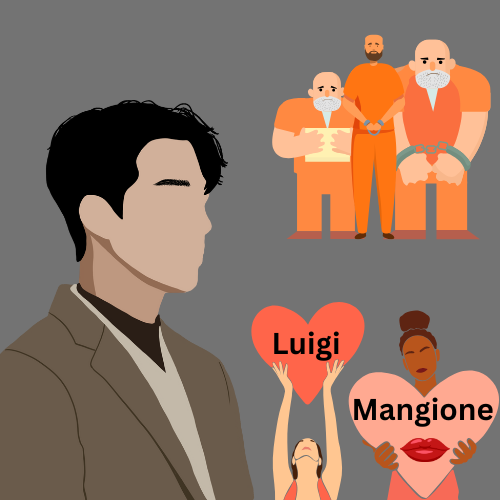
On Dec. 4, UnitedHealthcare CEO Brian Thompson was shot and killed during a targeted attack outside a New York hotel. While the case gained national attention almost immediately, the release of suspect Luigi Mangione’s mugshots and personal photos further catapulted the case into the spotlight.
Pictures of the charming 26-year-old have taken social media by storm, with users quick to post thirst traps and comment on Mangione’s attractiveness. One Instagram user, @scottnagao, posted a reel showing pictures of a shirtless Mangione smiling for the camera with the caption, “Those jury seats are gonna need to be covered with beach towels.”
Mangione has won over the internet with his shirtless physique and bright smile and unfortunately, research shows a defendant’s level of perceived attractiveness has drastic effects on punishment received and public reaction to the crime.
The Halo effect describes this phenomenon of putting weight on looks. The premise of this phenomenon is that one prominent trait, such as attractiveness, influences the public’s perception of the person as a whole. This cognitive bias proves to have noticeable effects on court cases.
In 2014, Crisps street gang member Jeremy Meeks was arrested for illegal possession of a firearm and grand theft. He has also previously assaulted a minor and was charged with robbery in 2002. When the Stockton Police Department released his mugshot, the public went wild. Within 24 hours of Meeks’ photo being posted on the department’s Facebook page, it had amassed more than 15,000 “likes” and 3,700 comments about his “handsome features”
Meeks’ charges would warrant 5-15 years of prison time, however, Meeks received a sentence of 27 months and only served 13 months. Due to his conventionally appealing mugshot, Meeks accepted modeling offers while in prison and walked NY Fashion Week one year after his release. Meeks’ case proves that looks and appearances do matter, even for someone with a criminal record as extensive as his.
On average, attractive criminals receive less jail time or punishments than unattractive criminals. In studies, jurors gave an average of 22 months more jail time for those that they deemed unattractive. Those same jurors found less attractive defendants guilty 22% more of the time compared to attractive ones.
It can be expected that the Mangione case will mimic Meeks’, especially considering this is Mangione’s first offense and the public views him as an attractive young hero. Additionally, the massive amount of social media publicity surrounding Luigi Mangione makes it harder to find jurors who are unbiased. “Good luck finding 12 jury members that don’t want to f*** him,” posted X user @JacksonRickun.
Luigi Mangione’s conventional attractiveness will certainly affect his sentencing and the way the public digests the raw information presented by authorities during the case.








